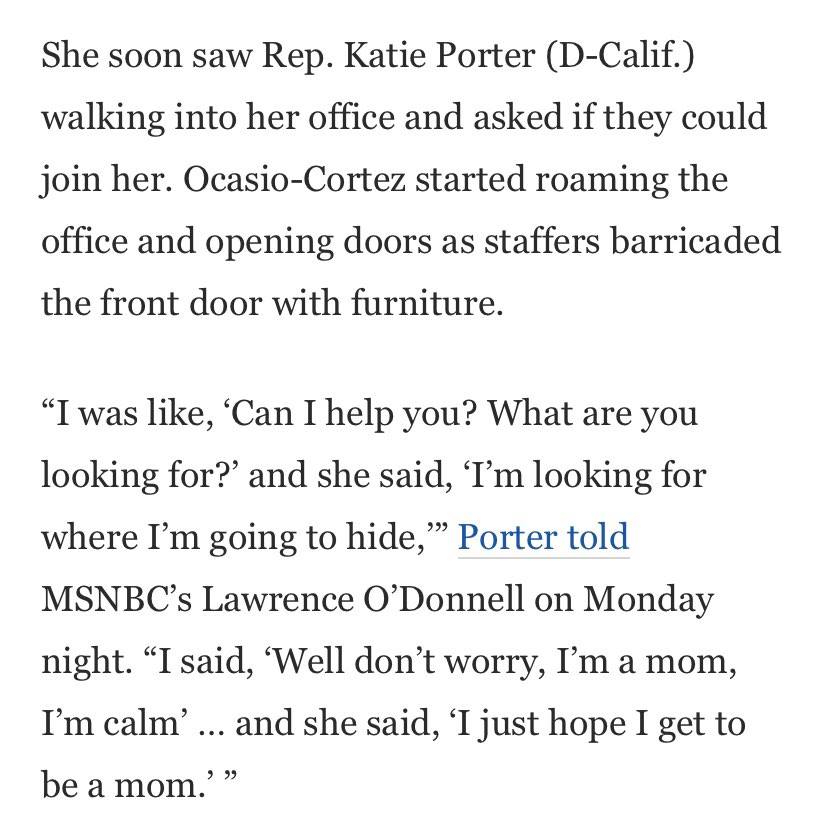I can’t get over the timeliness of @AOC discussing complex (“compounded”) trauma, which is dangerously ignored in America. We’re going through collective traumas that people will not be able to just "move on" from. So, here’s some assorted shit I think people should know. #CPTSD
Prolonged or complex traumas are experienced differently by your brain than a single traumatic incident. Your survival brain takes over during a trauma to protect you from a serious threat. (Fight/flight/freeze/fawn, etc) But with complex trauma, it’s not that simple.
In cases of singular traumatic events, treatment/healing focuses on helping you cope with triggers, restoring your sense of safety, and grounding yourself against briefly going into survival mode after a trigger - because the threat is not ongoing. The trauma ended.
But when you experience more trauma, it compounds and reinforces those previous events. It provides more confirmation bias for your brain’s neurobiological urge to stay in/near survival mode. Hypervigilance: you’re off shift, but still on call.
If you experience more trauma, your brain says “this is why we stay in survival mode, it’s not safe outside!” Complex trauma (CPTSD for shorthand) can also exacerbate new traumas or your responses, and emotions & beliefs caught up in CPTSD become more rigid over time.
Whether that complex trauma shows as hypervigilance around a “nice guy” who starts acting pushy or frantically searching for where you’re going to hide from insurrectionists even after reaching @RepKatiePorter’s office, it comes from the same place in your brain.
How could the insurrection trigger you about sexual assault? How could a fight about a TV show trigger you about a shooting? How could the COVID pandemic trigger you about an old accident? Complex trauma seems like it doesn't make sense, but to your brain, it does.
In CPTSD, your brain hoards trauma into garbage piles that aren’t always grouped thematically. It spills new water on the garbage, making it harder to clean, then you can’t find the pile but trip over it later. “What is my trash from the kitchen doing in the bathroom?”
So, complex trauma is harder to heal from, influences you in a broader way than a single event, and doesn’t necessarily match how we conventionally think about trauma. But why worry? Is it really that common here in the great, safe, "unified" America? (Answer: yes)
For example, adverse childhood experiences ( #ACEs) are events impacting the safety/stability of kids. Left unresolved, ACEs vastly increase the risk of #heartdisease & other illnesses and leave kids vulnerable to future traumas. Over 60% of the US has at least one ACE.
Women and people of color are also more at risk to experience 4 or more ACEs, per @CDCGov. There is constant trauma inflicted by police brutality, white supremacy, and rape culture. More ACEs = more opportunities for compounding trauma and more severe health effects.
Now, we've spent the past year in an inescapable survival mode situation due to COVID. Every other grief or trauma you’ve faced during this period is at risk of compounding, and kids will feel that burden even more. That is why we can’t just forget this and move on.
We need a national health corps to address the crisis of American trauma. So talk about complex trauma, if only to piss off the ghosts of old dudes who built systems favoring abuse, trauma, and control to avoid facing their own pain & flaws. /hyperfocus thread fin.

 Read on Twitter
Read on Twitter


